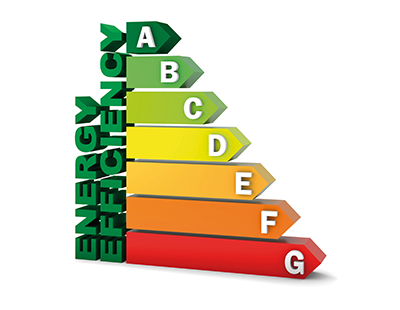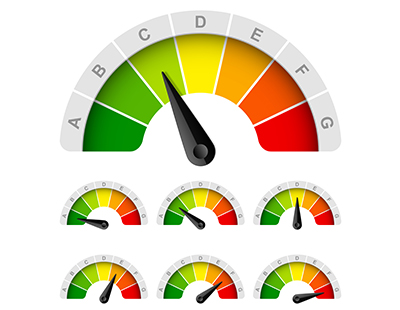Energy Performance Certificates are “misleading” indicators of zero carbon buildings and should no longer be used as official guides to help lower emissions, it has been warned.
New analysis by property consultancy Ingleton Wood shows actual carbon emissions for electrically heated buildings are around 60 per cent lower than predicted by EPCs, mainly because EPC methodology uses carbon factors set by the 2013 Building Regulations rather than up-to-date figures.
According to Ofgem, over 2.1m homes use electric heating. The change in the carbon factor has been dramatic as renewable technologies continue to make up more of the grid electricity mix while coal generation continues to fall.
The Ingleton Wood research is highly technical and claims that an EPC report would today estimate a carbon footprint of 519kg per year for a typical electric heated home needing 1,000 kWh/yr of heating.
But that headline figure is based on the 2013 carbon factor; this has since fallen to around 0.212, meaning the carbon footprint is far more likely to be around 212kg per year – rather than 519kg.
“Our research strongly suggests EPCs show figures distorted from reality,” Jason Page, a sustainability specialist at property and construction consultancy Ingleton Wood, says.
“EPCs are a powerful tool in fighting climate change but they are now not only becoming worse at indicating building carbon emissions as the grid’s electricity moves towards renewable generation – they are becoming increasingly and actively misleading.
“In our real-life example of an electric heated home, an EPC would have mistakenly shown gas as having around half the carbon footprint of electricity.
“This seriously risks confusing homeowners and landlords, leading policymakers to incorrect conclusions, and discouraging the decarbonisation of heat away from fossil fuel systems because they appear to reach higher EPC ratings far more easily than electric heating.”
The Ingleton Wood analysis also found what it calls “significant discrepancies” between EPC ratings and zero carbon properties.
For example, in Essex, 178 homes have 100+ EPC ratings but 1,777 had a zero or better rating for carbon emissions per floor area. Of these, 72 per cent were EPC rated A or B but eight, three and two were rated E, F and G respectively.
Page continues: “How can F and G homes be zero carbon? They were mostly period properties from the 1900s with wood log or pellet sourced heating and an assumed renewable source of energy. But it means zero-carbon properties can have a low EPC rating if you have the right combination of high cost and low carbon fuels in a high energy demanding property.
“While the next update to the Building Regulations, due imminently, may mean new EPCs are produced with carbon factors closer to reality, the decarbonisation of the electricity grid will mean EPC metrics will remain static and very soon be out of sync once more.
“EPCs were developed and continue to provide a static consistent comparison between properties, but as we seek to improve building performance in relation to achieving actual zero carbon ratings, we need to find a way to provide real-time data to continue to tackle the climate crisis.
“EPCs are not the correct tool for this job and I think a huge question mark hangs over whether we can trust EPC recommended improvements for cutting carbon emissions.”
















%20-%20IMAGE%20Client%20Accounting%20%E2%80%93%20what%20are%20your%20options.jpg)


.png)
.png)
.png)
%20(002).png)






%20(002).jpg)





%20A%20property%20tale%20for%20our%20times.png)








Join the conversation
Jump to latest comment and add your reply
SAP 10 is due to be released and any rdSAP changes usually happen 6 months later.
The electric heating concern is going to be rectified. At this point it would be beneficial to landlords to re do the EPC before carrying out any recommend work to increase the rating to the ever changing goal post.
Almost 1200 reads and only one comment. Sadly demonstrates the disinterest estate agents have in EPCs.
This is very interesting and chimes with what we have found. Could you share the Ingleton Wood report? It would be great to see.
Such a misconstrued article, all Headline no news to it, show me a Graph for the Carbon emmissions on an EPC.
Epc Ratings especially for Electrically heated properties will likely drop in the near future not go up as many hope.
If the climate and EPCs were important to estate agents then surely property websites would allow users to search for properties based on their EPC ratings. Right move, Primelocation and Zoopla don't allow this. High time for estate agents to "get" the importance of the climate!
Please login to comment